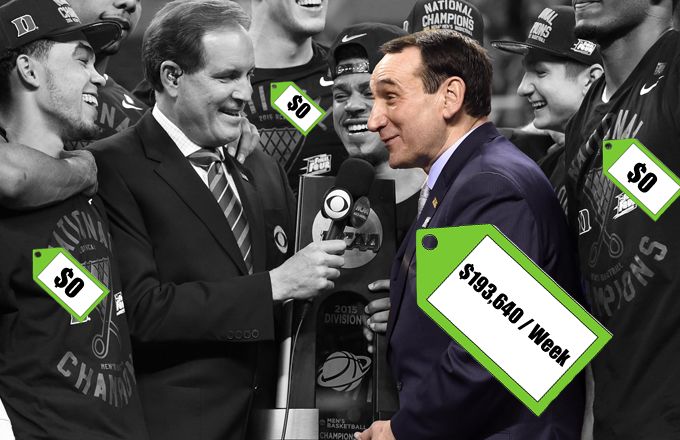Their primary goal as a corporation is to make money. If I'm Nike do I sell more jerseys, hoodies, t-shirts, etc. if Michigan with an enrollment of ~43k, Ohio State enrollment of ~64k, UT-Austin enrollment of ~50k becomes a powerhouse or Villanova with an enrollment of ~10k, Syracuse of ~15k etc. So now you would in theory not only have alumni and fan bases that dwarf others but you also have corporations that pad that cushion even further because they see a higher potential for them to boost sales if you have success.
Professional sports is completely different. Corporations can't really decide which teams are elite because of the draft, salary cap space, etc. It actually supports my line of thinking because free agency in NFL and NBA is set up that your current team is able to pay you more as that often times is enough of an incentive for guys to stay put.

